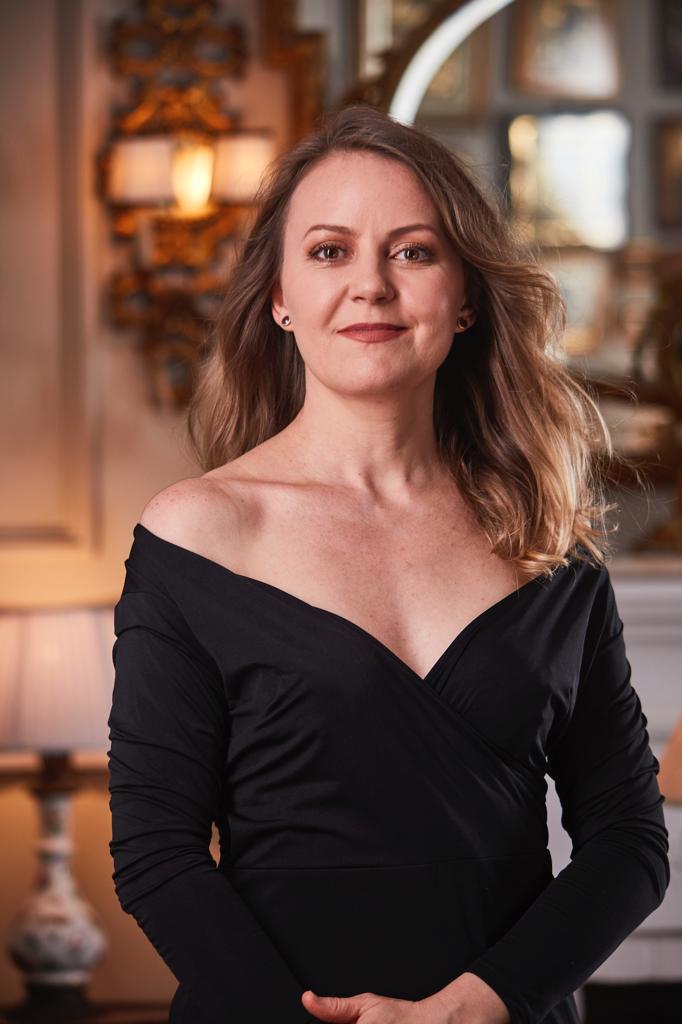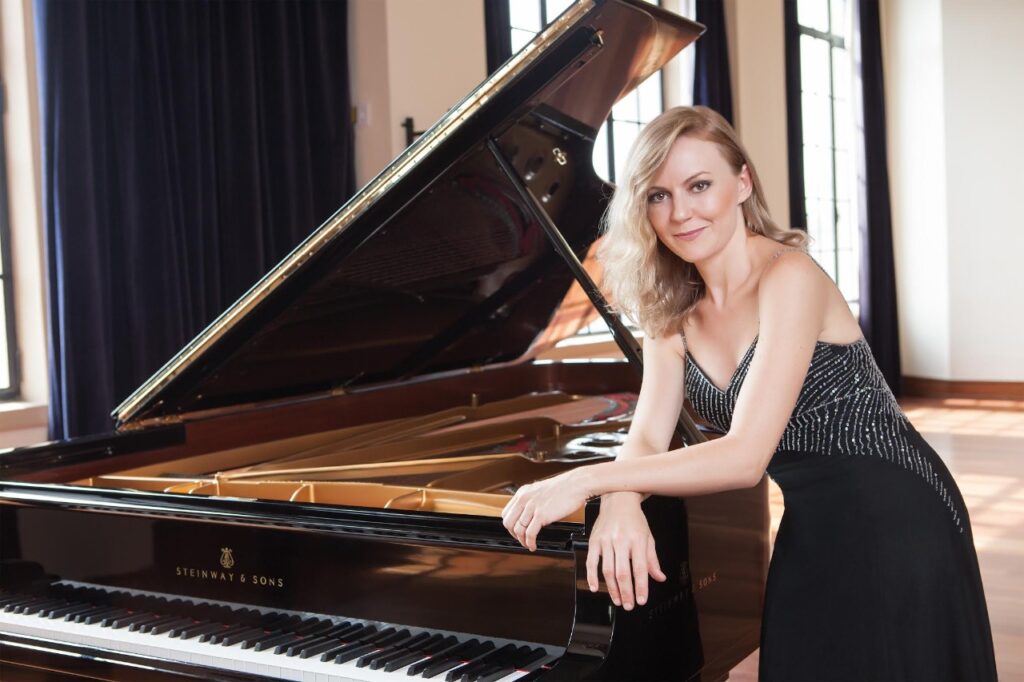Olga Kopylova

ABOUT
Born in 1979 in Uzbekistan, Olga began her piano studies at the age of 5 in Tashkent, at the Uspensky School of Music. In Moscow, she continued her studies at the Tchaikovsky School of Music and then at the Tchaikovsky Conservatory, taking lessons with Tatiana Galitzkaya and Liudmila Roshina, both representatives of Samuil Feinberg’s piano school. From 1994 to 2000, Olga performed as a soloist in the main concert halls in Moscow and the surrounding region. In 2000, she emigrated to Brazil. Olga is a solo piano artist and has performed with several Brazilian and international orchestras. Among them are: São Paulo State Symphony Orchestra, Campinas Symphony Orchestra, Brazilian Symphony Orchestra, Curitiba Chamber Orchestra, São Paulo State Youth Symphony Orchestra, Ribeirão Preto Symphony Orchestra, Jaraguá do Sul Philharmonic Orchestra, Rio de Janeiro Youth Symphony Orchestra and North State Symphony. She has performed solo piano and chamber music recitals in Latin America (Brazil and Colombia) and in the USA (in the cities of Redding, Chicco and Dansmiur, California).
Olga’s discography includes: Morning Star (CDA 2003); Guarnieri: Choros, Vol.1 & Seresta (Naxos 2020) and Guarnieri: Choros, Vol.2 (Naxos 2022); Miniatures: The Music of Cécile Chaminade (Azul Music 2021); Beethoven: Piano Sonatas No.3 in C Major, Op.2 & No. 16 in G Major, Op.31 (Azul Music 2021); Mozart: Sonatas for Piano and Violin, Vol.1 (Azul Music 2021); Salut d’Amour (Azul Music 2021-2022); Colors of Villa-Lobos (Azul Music 2022); Mozart: Sonatas for Piano and Violin, Vol.2 (Azul Music 2023); Clair de Lune (Azul Music 2023); Brazilian Fruits (Azul Music 2023); Corbani: Tarde de Outono & Other Songs (Azul Music 2024), Saudade (Azul Music 2024)
NEWS
The Colours of Villa-Lobos’ Piano Music
August 30, 2022
The pianist for the São Paulo Symphony Orchestra, Olga Kopylova, has created an album of selections from the extensive repertoire for solo piano written by Brazilian composer Heitor Villa-Lobos. Ms. Kopylova first encountered Villa-Lobos’ music while…

AWARDS
- 2011 - Magazine Concerto Award for the best chamber music concert;
- 2024 - Silver Record by the Association of Independent Recording Companies of Brazil.
EDUCATION
O curso oferece uma introdução à Escola Pianística Russa. Nas aulas são apresentados os fundamentos da técnica para iniciantes, crianças ou adultos, profissionais ou amadores, e trata das bases da metodologia utilizada nos primeiros anos do estudo de piano naquele país. Organizado em 8 módulos e 25 aulas, explica as bases da técnica pianística e ensina passo-a-passo como tocar piano de forma consistente, através da aplicação de exercícios simples e …